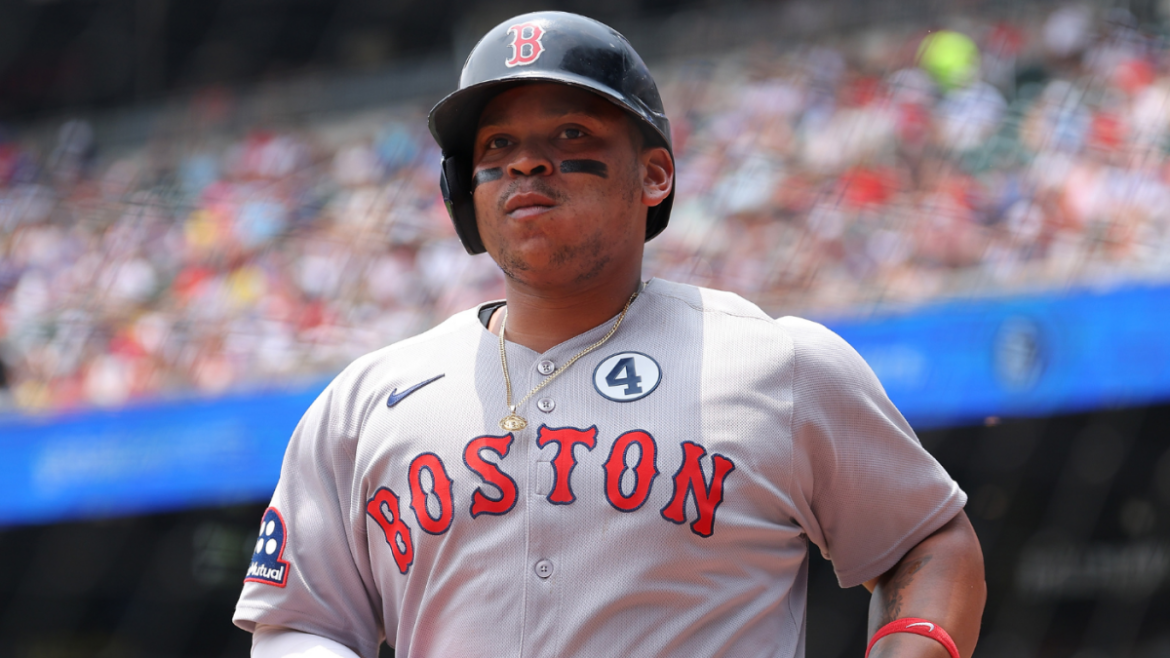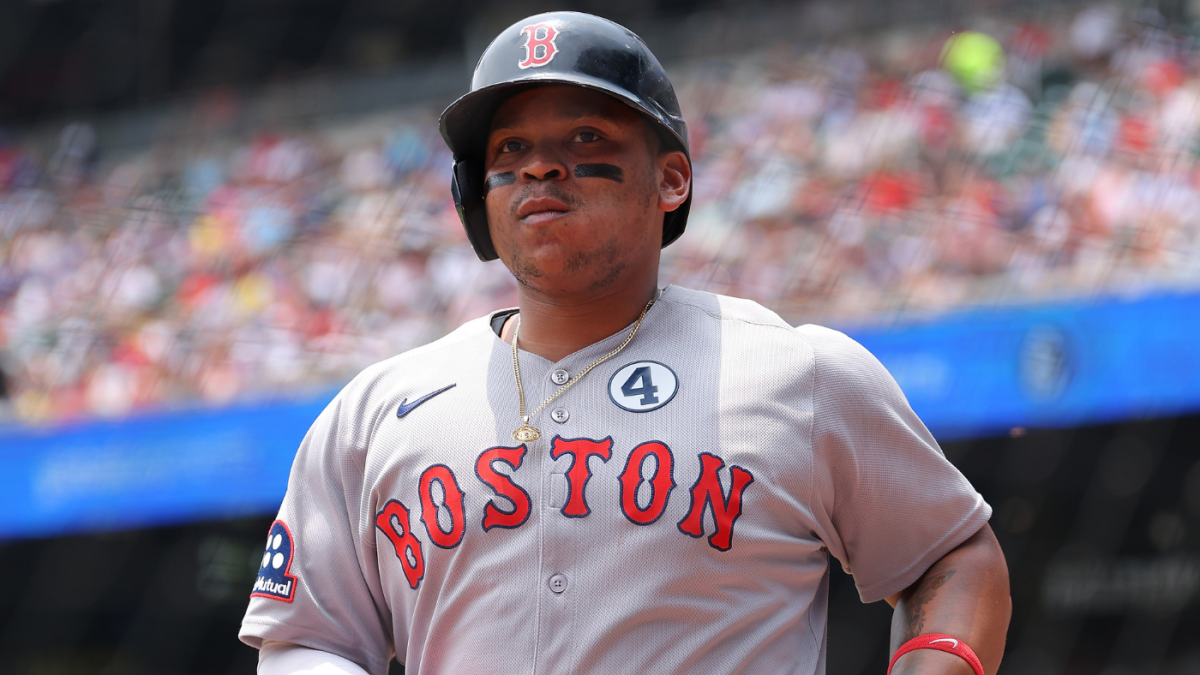The Boston Red Sox’s decision to trade Rafael Devers to the San Francisco Giants marks a seismic shift in the franchise’s trajectory, underscoring how player-team dynamics, positional changes, and financial strategy intertwine to catalyze blockbuster moves in modern Major League Baseball. This analysis unpacks the multiple facets behind this trade—looking at the personal, positional, and organizational tensions involved—and assesses the immediate and longer-term implications for both franchises.
The Devers Dilemma: Origins of a Rift
Rafael Devers was not just any player for Boston; he embodied the identity of the team since joining as a prodigious third baseman. Signed to a record-breaking 10-year, $313.5 million contract in early 2023, Devers was the cornerstone of the franchise’s future. Yet the relationship deteriorated rapidly starting in Spring Training 2024 when the Red Sox acquired All-Star third baseman Alex Bregman. The management’s request for Devers to move off his lifelong position—first to designated hitter (DH) and then an implied suggestion to learn another position—hit a raw nerve.
Devers was reportedly blindsided by the positional shift, feeling the team had acted in bad faith by not consulting him thoroughly or honoring his role at third base, a position where he had not only excelled but had built his professional brand and identity. Although Devers initially balked at switching to DH, he reluctantly agreed but suffered through a historical offensive slump, going 0-for-19 with 15 strikeouts early in the season. This poor start only compounded the fractured trust.
Citizens close to the situation reveal Devers did not initiate a trade demand; instead, the Red Sox’s front office seemingly made the relationship untenable. This reveals how critical alignment between player expectations and organizational strategy is, especially with franchise players. The breakdown between Devers and Boston’s management, coupled with the signing of Bregman, sparked the trade discussions.
Position Battles and Identity: The Core of Conflict
At the core of the trade was a positional dispute that, on the surface, may seem mundane but carried enormous weight for Devers personally. Being asked to relinquish the third base role was more than logistics; it was about professional respect and identity. The role of third base had been Devers’s domain since his MLB debut, where he earned three All-Star selections and became a centerpiece of Boston’s lineup.
The Red Sox’s reasoning was pragmatic: with Bregman arriving as a Gold Glove-caliber third baseman, Boston aimed to maximize the defensive strength by slotting Bregman there and moving Devers to DH, a position of less focused fielding responsibility. However, this shift not only affected game-day roles but represented a diminishing of Devers’s status in the clubhouse and the lineup hierarchy. Devers perceived the move as the team signaling a step away from him as an indispensable component, leading to a fractured relationship.
This situation highlights a broader issue in baseball roster construction—balancing star player egos and positions in a way that doesn’t destabilize club chemistry or morale. The Red Sox chose their roster configuration pragmatically but underestimated the personal and psychological ramifications on Devers.
The Trade Details and Assets Received
The trade, finalized in June 2024, sent Rafael Devers to the Giants in exchange for a package centered on pitching—right-handers Jordan Hicks and Kyle Harrison—along with additional prospects. Hicks, despite a shaky 6.47 ERA this season, shows promise through advanced metrics like FIP (3.59) and SIERA (3.95), indicating he is an asset with upside. Harrison represents a younger arm with potential to bolster Boston’s rotation or bullpen. These acquisitions indicate a strategic pivot by Boston toward cost-controlled pitching depth essential for long-term competitiveness.
From the Giants’ perspective, acquiring Devers was a win-now move aimed at bolstering the heart of their lineup. His offensive credentials (.272 average, .905 OPS, 15 homers in 73 games at DH) and third-base prowess provide immediate power and run production, positioning the Giants to compete aggressively in the pennant race. This blockbuster deal recalibrates power dynamics on both coasts.
Organizational Implications for the Red Sox
Boston’s willingness to trade away their franchise face in Devers, especially with eight years remaining on his mammoth contract, speaks to notable organizational calculations. Behind the scenes, reports suggest the Red Sox were reluctant to maintain the financial burden given Devers’s recent offensive struggles and strained clubhouse atmosphere. The trade also mirrors prior decisions like the controversial Mookie Betts trade in 2020, signaling a less patient posture toward star players unwilling to fit seamlessly into evolving team plans.
Moreover, the deal offers Boston salary relief and roster flexibility with younger pitching, signaling a possible rebuild or retool around a new core. How fans and players respond to trading arguably the franchise’s biggest homegrown star will impact clubhouse morale and public perception of the front office’s long-term vision.
What This Means for Rafael Devers
For Devers, the trade is both a fresh start and a statement moment. Moving to San Francisco restores him to his preferred position at third base under a different regime, giving him a chance to rejuvenate his career. The Giants’ “win-now” stance aligns with Devers’s ambitions to compete at the highest level. The personal element—Devers finding a team willing to fully embrace and utilize his talents as he envisions—is a potential catalyst for performance rebound and renewed All-Star quality contributions.
Conclusion: A Trade that Redefines More Than Rosters
The Rafael Devers trade between the Boston Red Sox and San Francisco Giants is a compelling study in how positional disputes, player dignity, and contract strategies can converge to redefine franchise identities. It serves as a cautionary tale on balancing star player roles within team building, highlighting how even the most decorated athletes can become trade pieces if organizational philosophies diverge.
For the Red Sox, this is a strategic reset, valuing pitching and flexibility over stalled star power. For the Giants, Devers injects established elite talent poised to lift their postseason ambitions.
Ultimately, the trade’s reverberations will be felt well beyond the immediate season, shaping how teams navigate player roles and loyalty in an era of mega contracts and heightened player empowerment. Rafael Devers’s journey will be closely watched as he aims to turn this new chapter into one of personal triumph and sustained excellence.





